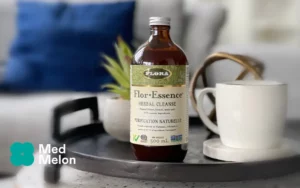Scientific Names of Flaxseed:
Linum usitatissimum L. [Fam. Linaceae]
Forms:
Whole seeds; Cracked whole seeds; Ground flaxseed, Defatted flaxseed (presscake).
Traditional Usage:
– Anti-inflammatory
– Antioxidant
– Autoimmune Diseases
– Breathing Disorders
– Cellular Regeneration
– Cleansing
– Constipation
– Detoxifying
– Digestive Upsets
– Diverticulitis
– Endotoxic Shock (Bacterial Infection Toxemia)
– Gastritis
– Hemorrhoids/Piles
– Hormone Imbalances
– Irritable Bowel Syndrome
– Poultice
– Reducing LDL Cholesterol
– Sore Throat
Overview:
Flaxseed products consist of the dried, ripe seed of Linum usitatissimum L. [Fam. Linaceae], as well as its preparations of ground seed, press cake or mucilage. The various cultivars of L. usitatissimum (L.) Vav. et Ell, including brown and golden flax varieties, are equally acceptable as medicines. The use of flaxseed as a food dates back about 9000 years according to researchers from both the Universities of Chicago and Istanbul, as per archeological finds recorded in Turkey and also in Syria about 8000 B.C., Iran about 7500 B.C. and Bulgaria in the Mesolithic Era. Thereafter, the use of flaxseed spread to Europe, West Asia and the Nile Valley. Flaxseed has traditionally been used as a medicine for treating chronic or occasional constipation, as a soothing, non-irritating bulk laxative; for alleviating irritable bowel syndrome and diverticulitis (for this purpose, the flaxseed should be ground up prior to use in order to avoid whole seeds getting trapped and irritating the diverticular pouches); as mucilage for gastritis. Flaxseed and defatted flax (flax presscake) is beneficial as a source of flaxseed lignans, phytoestrogens with strong antioxidant activity for promoting cellular regeneration, cleansing and detoxifying and proven cholesterol lowering effects. Based on human, placebo controlled clinical trials, taking 50g of flaxseed/day in four flax muffins brings a 9.8% reduction in LDL cholesterol and 19.8% reduction in Lp(a) within three weeks. For this purpose, flaxseeds must be ground up first, because if they are eaten whole, they will not be digested and will pass right through the digestive tract. A small coffee grinder can be used to grind flaxseeds in under a minute. The coating action of flax mucilage provides a protective effect on the intestinal lining and mucosa and also soothes the mucous membranes of irritated or sore throats.
Active Ingredients:
The seeds contain: fiber (hemicellulose, cellulose, and lignin), 2-2.5% lignans (phytoestrogens from the seed coat), fatty oils with 52 – 76 percent linolenic acid esters (omega-3 essential fatty acids), albumin, linustatin, and linamarin.
Suggested Amount:
1 tablespoon of whole or ground seed is mixed or shaken with 150 ml of liquid and this is taken 2 – 3 times daily. For the preparation of flaxseed mucilage: 2 – 3 tablespoons of flaxseed and mixed with 300 – 450 ml of hot water and strained and/or the flaxseed can be ground and mixed with water and the soothing gruel is taken throughout the day as needed.
Drug Interactions:
As with any other source of mucilage, the absorption of other drugs may be negatively affected, and so drugs should be taken either an hour before or after taking flaxseed.
Contraindications:
Whole seed and presscake products are contraindicated in the case of impacted bowel or bowel blockage of any origin.
Side Effects:
If sufficient amounts of liquid (1:10) are taken, as indicated above, then there are no known side effects. As with any type of fibre, it is important not to take too much all at once and over do it. If fibre is taken above the recommended dosage, or without adequate amounts of liquid, then impacted bowel can and may result causing related infections and thereby leading to the need for hospitalization – so don’t over do it and drink lots of liquids when taking any source of fibre.
References:
Prasad K. 1997. Dietary flax seed in prevention of hypercholesterolemic atherosclerosis.
Atherosclerosis 1997 Jul 11;132(1):69-76.
Stitt, PA 1997. History of Flax – 9000 years ago to 1986. Proc. of the 57th Flax Institute of the USA, March 26-28, 1998, Doublewood Inn, Fargo, North Dakota. J.F. Carter, ed. North Dakota State Univ., Fargo, ND pp. 152-153.
Thompson, L.U. 1998. Experimental studies on lignans and cancer. Baillieres Clin
Endocrinol Metab; 12:691-705.
Thompson LU, Rickard SE, Orcheson LJ, et al. 1996. Flaxseed and its lignan and oil
components reduce mammary tumor growth at a late stage of carcinogenesis Carcinogenesis 17: 1373-6.




